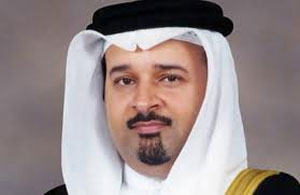
Bahrain for overhaul of subsidy system
Manama, February 6, 2013
Bahrain Finance Minister Shaikh Ahmed bin Mohammed Al Khalifa has called on MPs to support attempts to overhaul the subsidy system and outlined plans to impose fees on government services.
The government is pushing for an end to blanket subsidies as part of attempts to slash "unnecessary spending," said the Gulf Daily News, our sister publication, citing the minister.
It wants to replace the system with targeted subsidies, which would see only the most deserving members of society qualify for cheaper goods such as meat and petrol, the report stated.
"Money saved would then be ploughed into public projects," explained Shaikh Khalid.
"We have asked parliament several times to back our plans to change the subsidy system, which would see savings directed to the needy - not just everyone," he said as he appeared in parliament yesterday. "But MPs went against it," he added.
"Reducing unnecessary spending is the first step and then redirecting our revenue to more useful and beneficial projects, which would benefit the people," said Shaikh Ahmed.
He pointed out that the government had a three-pronged strategy to boost the country's finances, which included imposing fees for government services.
"Our government strategy at the moment is simplified in three steps," he said. "Impose fees on government services, remove subsidies and ask for the National Assembly's help to draw up a legislative plan through projects and legislation to diversify our income."
The minister was responding to a question by MP Isa Al Qadi on the government's plans to diversify sources of income.
In his explanation he admitted that Bahrain's dependence on oil had increased and the precious commodity now accounted for 88 per cent of the national revenue. This compares to a predicted figure of 83 per cent two years ago.
The minister said the government was seeking to diversify sources of income, but its priority was restoring the national economy and keeping unemployment at 4 per cent.
"Oil revenues in 1980 were 55.8 per cent of the gross domestic product and in 2011 they were just 21.5 per cent," he said.
"There is an increase in non-oil revenues from 44.2 per cent to 78.5 per cent if we take both years as an example," he added.-TradeArabia News Service







